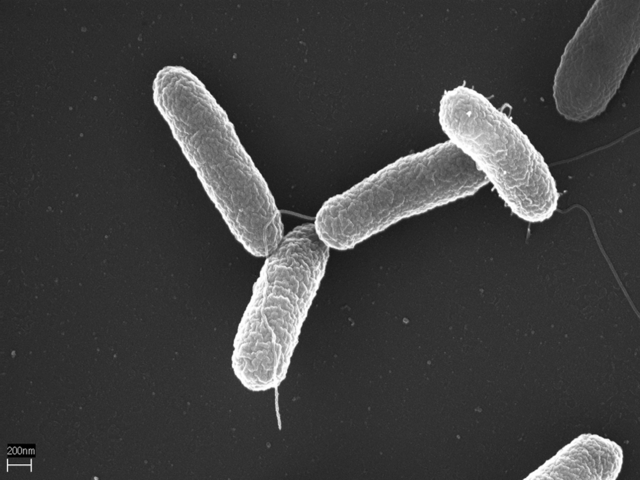
Salmonella Typhimurium (Image by Volker Brinkmann, Max Planck Institute for Infection Biology, Berlin, Germany via Wikimedia Commons)
The loss of appetite is a common symptom of a bacterial infection, where the spread of the pathogen suppresses the host’s desire to eat, along with other detrimental effects to the host’s health. But a recent study found that a type of Salmonella pathogen, Salmonella Typhimurium, has evolved to become less dangerous to its host and thus cleverly increasing its own chances of survival and transmission to other hosts. According to the researchers, this pathogen stimulated appetite in infected mice, ensuring a steady supply of nutrients and a safe mode of transmission to other mice by way of feces. These findings pave way to further our knowledge about transmission of infectious diseases, as well as how symptoms of bacterial infection could point to more effective treatment methods.
Authors:
Sheila Rao, Alexandria M. Palaferri Schieber, Carolyn P. O’Connor, Mathias Leblanc, Daniela Michel, Janelle S. Ayres
Corresponding author:
Janelle Ayres, Salk Institute, Email: jayres@salk.edu, Tel: +1 925-577-3374
Original paper published in Cell on January 26, 2017.



